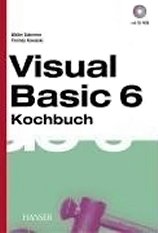Code-Beispiel
Schriftart in der Konsole ändern
| Lizenz: | Erster Autor: | Letzte Bearbeitung: |
| k. A. |  Volta Volta |  05.04.2022 05.04.2022 |
Windows API - Funktionen um den Consolefont zu ändern gibt es erst ab Windows Vista (ungeprüft: XP SP3).
Für diese Funktionen gibt es bisher in FB noch keine Definitionen, daher müssen wir sie über DyLibLoad in der 'kernel32.dll' ansprechen.
Die Funktion 'SetConsoleFont' ist eine nicht dokumentierte Funktion, die mehrere Fonts und Schriftgrößen einstellen kann. Über 'GetNumberOfConsoleFonts' kann man ermitteln wie viele unterschiedliche Konsolen vordefiniert sind.
(Anmerkung von grindstone: Die ersten beiden Beispiele funktionieren mit XP SP3, das dritte Beispiel nicht, da die Funktionen "GetCurrentConsoleFontEx" und "SetCurrentConsoleFontEx" dort in der "Kernel32.dll" noch nicht implementiert sind)
#Include Once "windows.bi"
'ab Windows Vista
Function Set_ConsoleFont(typ As Integer) As Integer
Dim As Any Ptr Kernel32
Dim SetConsoleFont As Function(ByVal As HANDLE, ByVal As Integer) As Integer
Kernel32 = DylibLoad("Kernel32.dll")
If Kernel32 Then
SetConsoleFont = DyLibSymbol(Kernel32,"SetConsoleFont")
Function = SetConsoleFont(GetStdHandle(STD_OUTPUT_HANDLE),typ)
DyLibFree Kernel32
EndIf
End Function
Function NumberOfFonts() As Integer
Dim As Any Ptr Kernel32
Dim GetNumberOfConsoleFonts As Function() As Integer
Kernel32 = DylibLoad("Kernel32.dll")
If Kernel32 Then
GetNumberOfConsoleFonts = DyLibSymbol(Kernel32,"GetNumberOfConsoleFonts")
Function = GetNumberOfConsoleFonts()
DyLibFree Kernel32
EndIf
End Function
Width 50,24: Color 15,1: Cls
For i As Integer = 16 To 254
Print Chr(i);
Next
Print
For n As Integer = 0 To NumberOfFonts-1
Print "SetConsoleFont Typ " & n, Set_ConsoleFont(n)
Sleep 2000,1
Next
Sleep
Der Aufruf von WinApi- DLLs lässt sich auch bei undokumentierten Funktionen noch einfacher schreiben. Hier das obige Beispiel in neuerer Schreibweise:
#Include Once "windows.bi"
'ab Windows Vista (ungeprüft: XP SP3)
Extern "Windows"
Declare Function GetNumberOfConsoleFonts() As DWORD
Declare Function SetConsoleFont(ByVal As HANDLE, ByVal As DWORD ) As BOOL
End Extern
Width 50,24: Color 15,1: Cls
For i As Integer = 16 To 254
Print Chr(i);
Next
Print
For n As Integer = 0 To GetNumberOfConsoleFonts-1
SetConsoleFont(GetStdHandle(STD_OUTPUT_HANDLE), n)
Print "SetConsoleFont Typ " & n
Sleep 2000,1
Next
Sleep
Die 'SetCurrentConsoleFontEx' erlaubt ein individuelles Einstellen des (Console)Fonts.
#Include Once "windows.bi"
'ab Windows Vista
Const FF_LUCIDA = 54
Const FF_TERMINAL = 48
Type CONSOLE_FONT_INFOEX
cbSize As UInteger
nFont As Integer
dwFontSize As COORD
FontFamily As UInteger
FontWeight As UInteger
FaceName As WString * LF_FACESIZE
End Type
Declare Function SetConsoleFont(ByVal sTypeface As String, wFontWidth As Short, wFontHeight As Short, wFontStyle As Short) As Integer
Dim Shared As Any Ptr Kernel32
Dim Shared GetCurrentConsoleFontEx As Function (ByVal hConsoleOutput As HANDLE _
, ByVal bMaximumWindow As Integer _
, ByVal lpConsoleCurrentFontEx As Any Ptr) As Integer
Dim Shared SetCurrentConsoleFontEx As Function (ByVal hConsoleOutput As HANDLE _
, ByVal bMaximumWindow As Integer _
, lpConsoleCurrentFontEx As Any Ptr) As Integer
Kernel32 = DylibLoad( "Kernel32.dll" )
If Kernel32 Then
GetCurrentConsoleFontEx = DylibSymbol( Kernel32, "GetCurrentConsoleFontEx" )
SetCurrentConsoleFontEx = DylibSymbol( Kernel32, "SetCurrentConsoleFontEx" )
Else
End
EndIf
Dim As Integer dwMxScrn = SetConsoleFont("Lucida Console", 10, 16, FF_LUCIDA)
If dwMxScrn Then
Print "Konsole mit " & LoWord(dwMxScrn) & "x" & HiWord(dwMxScrn) & " Zeichen."
End If
DylibFree Kernel32
Sleep
Function SetConsoleFont(ByVal sTypeface As String,wFontWidth As Short _
, wFontHeight As Short, wFontStyle As Short) As Integer
Dim hConHdl As HANDLE = GetStdHandle(STD_OUTPUT_HANDLE)
If hConHdl < 0 Then Return 0
Dim ConFont As CONSOLE_FONT_INFOEX
With ConFont
.cbSize = SizeOf(ConFont)
.nFont = 0
.FontFamily = wFontStyle
.dwFontSize.X = wFontWidth
.dwFontSize.Y = wFontHeight
.FaceName = sTypeface
End With
If SetCurrentConsoleFontEx(hConHdl, 1, @ConFont) Then
GetCurrentConsoleFontEx(hConHdl, 1, @ConFont)
Function = ConFont.dwFontSize.X Shl(16) + ConFont.dwFontSize.Y
End If
End Function
| Zusätzliche Informationen und Funktionen |
|---|
- Das Code-Beispiel wurde am 22.11.2011 von
 Volta angelegt. Volta angelegt.
- Die aktuellste Version wurde am 05.04.2022 von
 grindstone gespeichert. grindstone gespeichert.
|
|
 Volta
Volta 05.04.2022
05.04.2022


 FreeBASIC-Nachrichten jetzt auch über Twitter erhalten. Follow us!
FreeBASIC-Nachrichten jetzt auch über Twitter erhalten. Follow us!
 Bearbeiten
Bearbeiten Versionen
Versionen